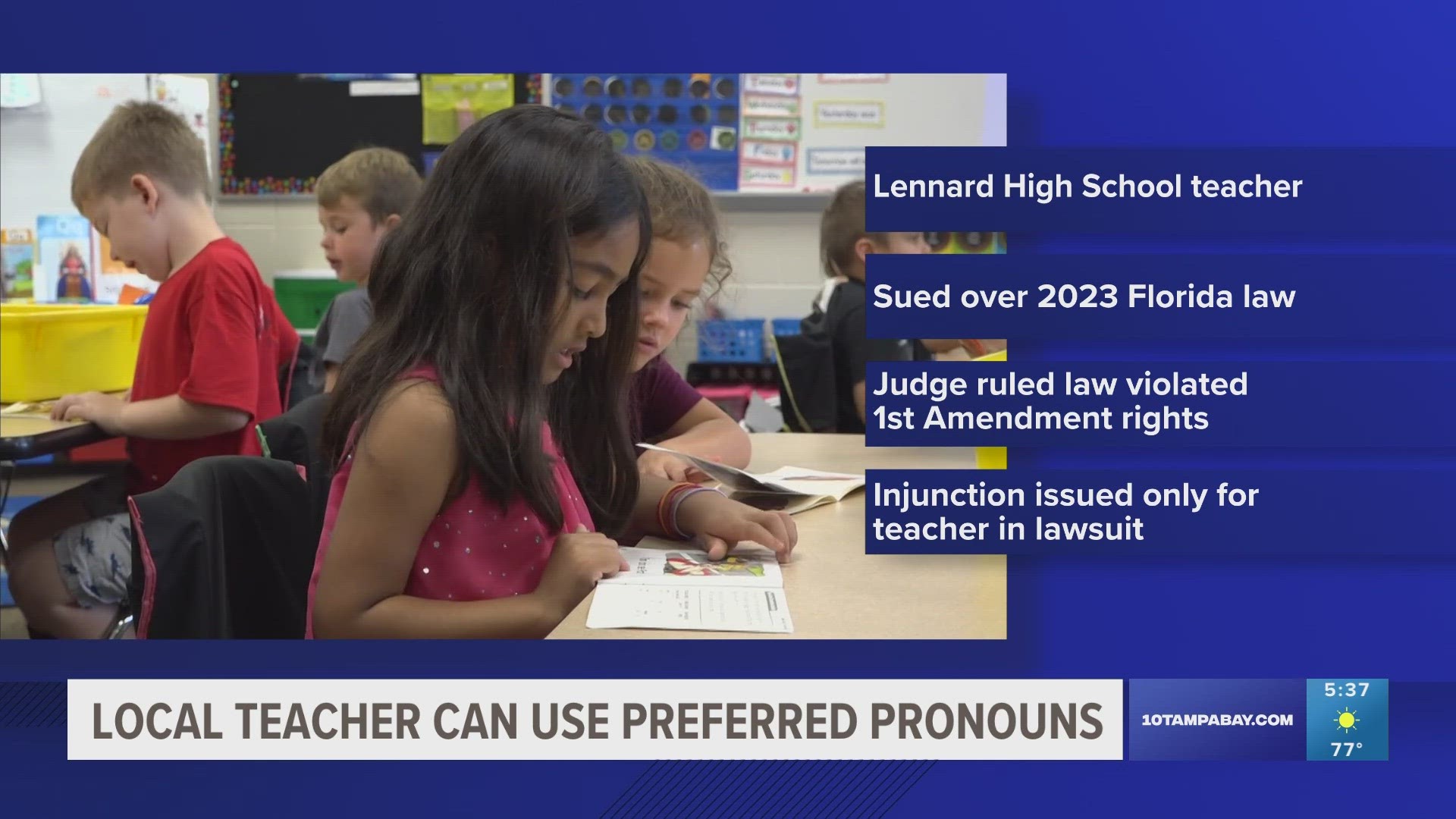TAMPA, Fla. — A Hillsborough County math teacher can use her preferred pronouns in school, a federal judge ruled.
Chief U.S. District Judge Mark Walker blocked state education officials from enforcing a law requiring Katie Wood, a teacher at Lennard High School, to use pronouns that align with her sex assigned at birth.
“Once again, the state of Florida has a First Amendment problem,” Walker wrote. “Of late, it has happened so frequently, some might say you can set your clock by it.”
Wood sued the Florida Department of Education over a 2023 law that doesn’t allow educators to use their preferred pronouns and titles in schools. If they do, they can be stripped of certifications and the school districts can be fined.
The judge said the law violated Woods’ First Amendment rights. He cited a 2022 decision by the U.S. Supreme Court that ruled in favor of a public school football coach who was fired for praying on the field.
“Like Coach Kennedy’s professed faith, Ms. Wood’s preferred pronouns and title are uniquely personal to her,” Walker wrote. “In the same sense that Coach Kennedy’s public prayers identify him as a man of faith, Ms. Wood’s expression of her preferred title and pronouns identify her as a woman.”
Walker’s injunction only applied to Wood, though. He denied an injunction requested by AV Schwandes, a nonbinary teacher fired last year by Florida Virtual School.
Walker said there isn’t sufficient evidence that Schwandes’ speech is being chilled. Schwandes didn’t provide any evidence showing that they intend to engage in speech in the foreseeable future that would violate the law, Walker wrote.
Gov. Ron DeSantis signed the bill during the last legislative session among other laws the LGBTQ community has said threatens their rights and makes them targets of hateful rhetoric. The Parental Rights in Education bill, known as the “Don’t Say Gay” law, limits the instruction of gender identity or sexuality in schools.
After the law went into effect the Florida Board of Education released new additions to their professional conduct guidelines for teachers, saying they risk losing their teaching license if they refer to students by preferred names or pronouns.
Teachers can also face penalties if they use bathrooms that don’t match the sex they were assigned at birth.
Walker wrote that the defendants in the case have provided no evidence that Wood’s speech has hindered her duties as a teacher or the operations of the school. Lennard High School continued to rate her as an “effective” teacher and her students have test scores above the district average, he wrote.
“In sharing her preferred title and pronouns, Ms. Wood celebrates herself and sings herself — not in a disruptive or coercive way, but in a way that subtly vindicates her identity, her dignity, and her humanity,” he said.
In March, a settlement was reached between Florida education officials and civil rights attorneys who challenged the state law.
It clarified what is allowed in Florida classrooms with the Florida Board of Education sending out instructions to school districts saying state law doesn’t prohibit discussing LGBTQ+ people.

